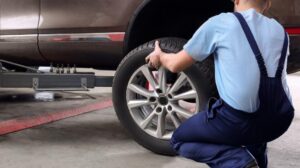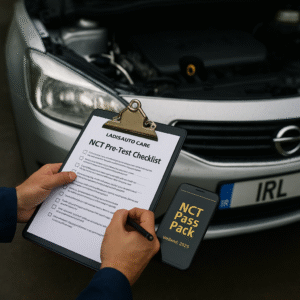Understanding the Cause of Grinding Noises During Gear Shifts
When you hear a grinding noise while shifting gears, it is often an indicator of underlying mechanical issues that require immediate attention. One of the primary reasons for this grinding sound is worn-out gears. Gears are designed to mesh smoothly, but over time, they can become worn or damaged. When this happens, the gears fail to engage properly, resulting in a grinding noise. Regular inspection and timely replacement of worn gears can help prevent further damage to the transmission system.
Clutch problems are another common cause of grinding noises during gear shifts. The clutch is responsible for disengaging the engine from the transmission when you change gears. If the clutch is not functioning correctly—whether due to a worn-out clutch disc, a malfunctioning release bearing, or an improperly adjusted clutch cable—it can lead to incomplete disengagement. This incomplete disengagement causes the gears to grind against each other, producing that distinctive and troubling sound.
Transmission issues can also be a significant factor in grinding noises during gear shifts. The transmission is a complex system of gears and components that work in unison to transfer power from the engine to the wheels. Problems such as low transmission fluid levels, contaminated fluid, or internal damage to the transmission can all cause grinding noises. Regular maintenance, including fluid checks and changes, can help maintain the transmission in good working order and prevent the occurrence of grinding noises.
Understanding how these components—gears, clutch, and transmission—interact is crucial for diagnosing the root cause of grinding noises. Wear and tear are inevitable over time, but early detection and regular maintenance can significantly mitigate the risk of extensive damage. By addressing issues promptly, you can avoid costly repairs and ensure the longevity of your vehicle’s transmission system. Therefore, paying attention to grinding noises and seeking professional assistance when necessary is essential for maintaining your car’s performance and reliability.
Is It Normal to Hear a Noise When Shifting Gears?
When it comes to shifting gears, some degree of noise can be expected. While the ideal scenario would be a completely silent transition, the mechanics involved often produce subtle sounds. Understanding the difference between these expected noises and problematic ones is crucial for vehicle maintenance and safety.
Acceptable sounds typically include a slight clicking or a soft whining noise. These sounds are usually the result of the gear synchronization process and are often more prominent in manual transmissions. In automatic transmissions, the shift might be nearly silent or accompanied by a faint hum. These noises are generally harmless and are part of the regular functioning of the transmission system.
However, a grinding noise is a different matter altogether. Grinding noises are often indicative of a more serious issue. This sound usually occurs when the gears are not engaging properly, leading to metal components rubbing against each other. Such a scenario not only affects the performance of the vehicle but can also lead to significant wear and tear on the transmission components.
For instance, if you hear a grinding noise while shifting gears, it could be due to worn-out synchronizers, a damaged clutch, or even low transmission fluid levels. These issues require immediate attention to prevent further damage. Unlike the benign clicking or whining sounds, grinding is a clear red flag that something is amiss within the transmission system.
In essence, while some noises are normal when shifting gears, a grinding noise should never be ignored. Recognizing the difference between normal and abnormal sounds can help you take timely action, ensuring the longevity and reliability of your vehicle’s transmission system.
The Implications of Grinding Gears: Is It Bad?
When you hear a grinding noise while shifting gears, it is not merely an annoyance; it is a warning sign of potential damage within the transmission system. Persistent grinding can lead to significant wear and tear on critical components, such as the gearbox and clutch. Each instance of grinding chips away at these parts, gradually deteriorating their functionality. The gearbox, for instance, comprises intricate gears and shafts that rely on precise alignment and smooth operation. When grinding occurs, the precise interactions between these components are disrupted, leading to accelerated wear.
The clutch, another vital component in the transmission system, is also adversely affected by grinding. The clutch’s role is to engage and disengage the engine from the gearbox smoothly. Grinding noises indicate that the clutch is not operating as intended, which can result in uneven wear and eventual failure. This not only compromises the performance of the vehicle but also leads to costly repairs. Ignoring these noises can escalate the damage, transforming minor issues into major mechanical failures.
Long-term consequences of unaddressed grinding noises extend beyond the gearbox and clutch. The entire transmission system can be compromised, leading to decreased vehicle performance. Inefficient gear shifts can cause the engine to work harder, reducing fuel efficiency and increasing emissions. Moreover, the safety of the vehicle is put at risk. A malfunctioning transmission can lead to unexpected gear changes or even complete transmission failure while driving, posing a significant hazard to both the driver and others on the road.
Therefore, it is imperative to address grinding noises promptly. Early diagnosis and repair can prevent further damage, ensuring that the transmission system remains in optimal condition. Regular maintenance checks and timely interventions not only save on repair costs but also maintain the vehicle’s performance and safety standards. Ignoring the warning signs can result in extensive damage and higher expenses down the line, making it crucial to act swiftly at the first sign of trouble.
Identifying a Bad Gearbox: What Does It Sound Like?
When it comes to vehicle maintenance, identifying a bad gearbox early can save both time and significant repair costs. Recognizing the specific sounds that indicate gearbox problems is crucial. One of the most common and alarming noises is a grinding sound when shifting gears. This is often a clear indication of worn-out gears or synchros, which may require immediate attention.
Apart from grinding noises, you might also hear a whining sound emanating from the gearbox. This typically occurs due to a lack of lubrication or a malfunctioning bearing. Such a noise is usually more noticeable when the car is in motion and can become louder with increased speed. Another sound to be wary of is a clunking noise, which often suggests loose or damaged components within the gearbox. This noise may be particularly evident during gear changes or when the vehicle transitions from a complete stop to motion.
To accurately diagnose these sounds, it is advisable to perform a few checks. One practical tip is to listen to the gearbox while the car is in neutral. If you notice any unusual noises, it could be a sign of internal damage. Additionally, pay close attention to the sounds during gear shifts and while accelerating or decelerating. Each type of noise can provide valuable clues about the underlying issue.
For those who are unsure about their diagnostic skills, seeking professional advice is highly recommended. Mechanics have the expertise and tools to pinpoint the exact problem. Utilizing diagnostic tools such as those available at Auto Query and Auto Query Pro can also be beneficial. These tools can provide a more precise diagnosis, helping to identify and resolve gearbox problems efficiently.





